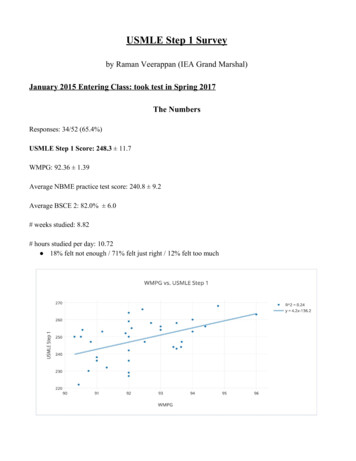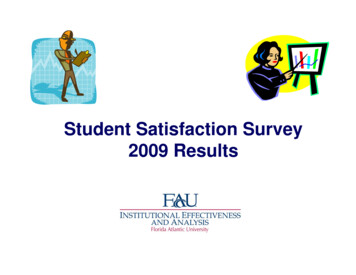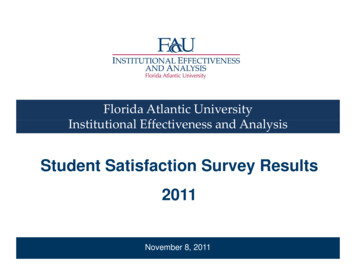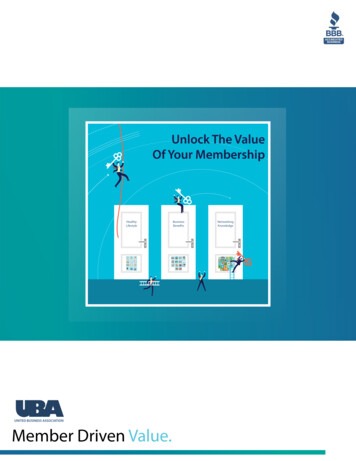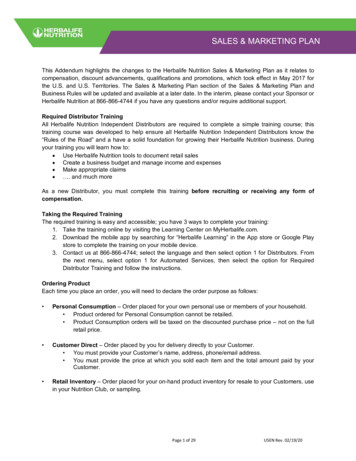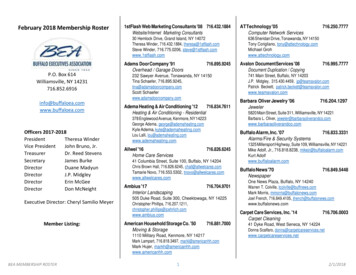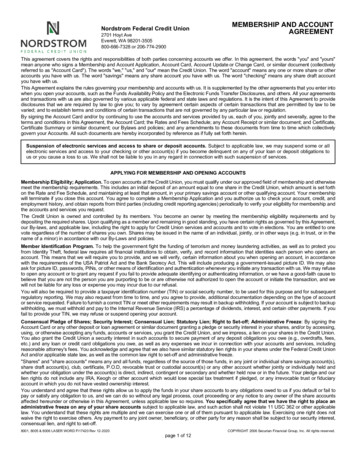
Transcription
#2 Summer/Fall 2019The IEA Online Learning Portal is a benefit ofyour IEA membership and is available to all membersFREE of charge through IEA Members Only.Mary Jane MorrisIEA Teaching and Learning DirectorMaryjane.Morris@ieanea.orgLindsay PowellAdministrative AssistantLindsay.Powell@ieanea.orgKelsey HarmsComputer SpecialistKelsey.Harms@ieanea.orgDiana ZaleskiInstructional Resource and Professional Development DirectorDiana.Zaleski@ieanea.orgOnline LearningPortal CatalogFeatured courses forSummer/Fall 2019A complete list of course offerings can be found on theIEA Online Learning Portal on Members Only.PD on ork at your own pace!
A bit about the IEA Online Learning PortalThe IEA Online Learning Portal is a benefit of your IEA membership and isavailable to all members FREE of charge through IEA Members Only. Thiscatalog features new courses and will be updated twice a year. A completelist of course offerings can be found on the IEA Online Learning Portal.You can earn clock hours on demand at your own pace. Login or createan account on IEA Members Only to gain easy access to the portal. Newcourses are always being added. Login to Members Only to get started!Our MissionThe Illinois Education Association-NEA’s mission is to effect excellenceand equity in public education and to be THE advocacy organization for allpublic education employees.IEA believes that educators provide the stable, nurturing, inspiringenvironment that makes it possible to teach each student and provideindividual attention to each student’s learning needs. To this end, we workto ensure that every student has a qualified, caring educator.We believe that we must change the way educators are recruited, trained,evaluated, supported, and held accountable. We believe we must raise thebar for what it means to be a quality educator by focusing on preparing neweducators for the classroom, attracting and retaining educators, providingcontinuous, high quality professional development for all educators, andpromoting effective teachers and quality educators.Frequently Asked Questions (FAQs)How do I sign up for an IEA Online Course?To take an IEA Online Learning Course, visit www.ieanea.org, at the top ofthe page choose Member Login. Please register or log in if you already havean IEA Members Only account. This easy process takes no more than 30seconds! If you have any issues or questions, please contact IEA Connectat 1-844-IEA-1800. We are here for you!How much time does a class take?IEA online courses vary in time from 15 minutes to six hours. Each coursehas the time estimation listed on its descriptor.Can I earn PD clock hours?The answer is a resounding “Yes!” As IEA is an ISBE Approved Provider,nearly all of the courses on the IEA Online Learning Portal qualify for PDclock hours. Each course is identified if PD clock hours are provided.The amount of PD clock hours is listed on the course description. At theconclusion of each course, you will need to complete the ISBE Evaluationfor Course, certify you’ve completed all parts of the course, and enter yourIEIN. You then will be able to download the ISBE Evidence of Completionfor your records.Does IEA have professional development?Yes. IEA offers professional development opportunities both online andface to face. IEA is your gateway to becoming the best educator you canbe and your ally in Illinois educational reform. Together, we are building thebest learning environments for Illinois students.Additional ResourcesRequest a PD TrainingThe IEA supports IEA staff, members and local associations by providingprofessional development opportunities to improve teaching and learning,technology, communications and legal through online and face to facetrainings. Interested in a local training? You can request training at fessional-developmentrequest-form. Please complete the form to indicate your interest inprofessional development for your local association, school or district.Remember, it is helpful if this form is submitted at least one month in advanceto allow enough time for IEA staff to assist you in meeting your professionaldevelopment goals. For more information and to meet the IEA Teaching andLearning staff, download the IEA Teaching and Learning brochure.We welcome suggestions and feedback.Contact us at IEA Connect!
An Introduction to Culturally Responsive TeachingIn this course, Professor Kara Mitchell Viesca of the University ofNebraska Lincoln guides us as we explore our own cultures andthe dominant cultural narratives, or majoritarian stories, which mayaffect our perceptions of students, families, and school. By startingwith our own cultures, we may develop culturally responsive andrelevant pedagogy to meaningfully support our diverse learners.Global Education: 1 clock hourBlack Chicago: History, Race and RenaissanceThe history of Chicago is one of stockyards, immigrants, andmachine politics. For African Americans, it’s also one of vastopportunity, rigid exclusions, and community building. In this onlineseminar, Dr. Davarian Baldwin, historian and professor of Americanstudies at Trinity College, explores the history of black Chicagoin the 20th century, from the Great Migration through the CivilRights Movement. Along the way, he discusses the mechanisms ofsegregation and Jim Crow in the North but also the means by whichAfrican Americans in Chicago built institutions to effect change intheir neighborhoods and city.Global Education: 1 clock hourBuilding Rep: Organizer and CommunicatorThis course will focus on two of the most crucial roles of the buildingrepresentative: Organizer and Communicator. Topics include typesof organizing, one on one conversations, communication strategies,10 minute building meetings and active listening.Advocacy: No clock hoursConducting an Elections CampaignThis course is part of the Board Elections Campaign Series andwill focus on “Conducting a School Board or Trustee ElectionsCampaign.” Each course in the Board Election Campaign Serieshas been designed to help local associations through the campaignprocess. If associations follow the steps outlined in this series,they have an excellent chance of receiving more votes than theiropponent on Election Day and reaching the goal of winning at thelocal level. Conducting a School Board or Trustee Campaign canbe a difficult, but rewarding experience for your association. Byusing these guidelines to plan and prepare, the local association willachieve success.Advocacy: No clock hoursCreating a Culture for Learning with Cafe and Daily 5The foundation of any good lesson starts at the planning stages.Educators who are successful at meeting all students’ needs orimplementing differentiated instruction rely on targeted planning.This module provides participants with the key foundations forensuring student engagement.Classroom Culture: 0.5 clock hourEngaging the ElectorateThis course is part of the Board Elections Campaign Series andwill provide the local association with information on Engagingthe Electorate. This includes contacting voters with the localassociation message with person-to-person contact by thecandidate and campaign volunteers. Each course in the BoardElection Campaign Series has been designed to help localassociations through the campaign process. If associations followthe steps outlined in this series, they have an excellent chanceof receiving more votes than their opponent on Election Dayand reaching the goal of winning at the local level. Conducting aSchool Board or Trustee Campaign can be a difficult, but rewardingexperience for your association. By using these guidelines to planand prepare, the local association will achieve success.Advocacy: No clock hoursEnhancing Instruction through Targeted Planning(Domain 1)The foundation of any good lesson starts at the planning stages.Educators who are successful at meet all students’ needs orimplementing differentiated instruction rely on targeted planning.This short module will provide participants with the key foundationsfor ensuring engagement for students in daily lessons. Connectionsto Danielson’s Framework for Teaching will be made throughoutand participants will finish with creating a Teaching Cycle Map forrelevant classroom application.Teaching & Learning: 0.75 clock hourGlobal Books as Windows and MirrorsThe foundation of any good lesson starts at the planning stages.Educators who are successful at meet all students’ needs orimplementing differentiated instruction rely on targeted planning.This short module will provide participants with the key foundationsfor ensuring engagement for students in daily lessons. Connectionsto Danielson’s Framework for Teaching will be made throughoutand participants will finish with creating a Teaching Cycle Map forrelevant classroom application.Global Education: 1.25 clock hours
Importance of Board ElectionsOpening the School Year – The First DayIntroduction to Applied Behavior AnalysisOpening the School Year – The First WeekThis course is an introduction to the Board Elections CampaignSeries and will focus on “The Importance of School Board or TrusteeElections.” All elections are important, but for educators in a schooldistrict, university or community college, local school boards ortrustees have a direct impact on schools and employment. Eachmodule in the Board Election Campaign Series has been designed tohelp local associations through the campaign process.Advocacy: No clock hoursThis course introduces educators to the characteristics andprinciples of applied behavior analysis. Rachel Brandt, specialeducation teacher and board certified behavior analyst candidateidentifies the four requirements of a useful behavioral theory andexplains the connections between behavior and environmentalfactors that affect behavior. The six characteristics of appliedbehavior analysis will be identified as well as the basic componentsof ABA.Teaching & Learning: 1 clock hourJapanese Culture: Animism to AnimeWhat do Spirited Away, Japanese gardens, sumo wrestling andGodzilla have in common? In this course, Professor Charles Inouyeof Tufts University will explain how these distinctly Japanese culturalphenomena--so engaging to young people--reflect the importantconcept of animism. He will introduce animism as manifest in Japan,discuss its historical evolution (particularly in relationship to Shintoand Zen Buddhism), and show how it has survived and is thriving,using examples from traditional, modern, and postmodern Japaneseculture. The course will also highlight resources for the classroom.Global Education: 1.25 clock hoursManaging Student Behavior - Using the DanielsonFrameworkThis is the first course of the series, Managing Student Behavior.In order for students to be able to engage deeply with content, theclassroom environment must be orderly. Successfully managingstudent behavior involves three areas of focus. Expectations forstudent conduct must be established and implemented. Teachersmust learn to monitor student behavior and move subtly tohelp students re-engage. And, a teacher’s response to studentmisbehavior must respect the dignity of the student and shouldaddress the misbehavior early in an episode.Classroom Culture: 0.5 clock hourThis is the first course of the series, Opening the School Year. Inpart 1, participants will examine the research on effective ways tobegin the school year. By examining the work of Drs. Rosemary &Harry Wong, participants will develop an understanding of whatthe research shows that effective teachers do on the first day ofthe school year Participants will apply the research to their specificsituation and create a detailed plan to begin the school year.Classroom Culture: 0.5 clock hourPrerequisite: Opening the School Year – The First DayThis course is Part 2 of the series, Opening the School Year.Participants will examine the research on effective ways to openthe classroom for the school year during the first week of school.By examining the work of Drs. Rosemary & Harry Wong andCharlotte Danielson, participants will develop an understanding ofthe research on teaching procedures and routines. Participants willprepare specific lesson plans to implement the research and createan action plan to guide their overall planning for their classroomlessons during the first week of school.Classroom Culture: 0.75 clock hourOpening the School Year – The Second Week andBeyondPrerequisite: Opening the School Year – The First WeekIn part 3, participants will examine the research on effective waysto begin the school year. By examining the work of Drs. Rosemaryand Harry Wong, and Charlotte Danielson, participants will developan understanding of the research on developing respect and rapportin the classroom. Participants will develop specific lessons toimplement the research and create an action plan to guide theiroverall planning for their classroom lessons during the second weekof school.Classroom Culture: 0.75 clock hourRtI: An Introduction to Classroom InterventionsResponse to Intervention is a support process that is oftenmisunderstood. While many educators view RtI as a pull-outremediation process, it is actually a powerful classroom value systemthat places student success as the highest priority. This course willexplore classroom-level processes to ensure all students receive thetime and support needed to learn at high levels and be successful.Teaching & Learning: 1 clock hour
Social Emotional Learning (SEL) FoundationsEveryone seems to be talking about SEL! What exactly is SEL andhow is it different than supporting the whole child. Learn about thefoundations of supporting all needs in the classroom. Resourceswith links to tools will be provided to take what is learned and applyright in the classroom.Social Emotional: 0.5 clock hourStudent Mindset & Grit, Part 2 - The SEL StandardsPre-Requisite: Student Mindset & Grit, Part 1 - UnderstandingMindset & GritThis is the second course in the series, Student Mindset andGrit. In part 2, participants will be introduced to the socialemotional learning standards. By examining the components ofgrit, participants will learn how to help students develop a growthmindset. Participants will also gain an understanding of how to helpstudents take responsibility for their own learning.Classroom Culture: 0.5 clock hourStudent Mindset & Grit, Part 3 - Classroom StrategiesPre-Requisite: Student Mindset & Grit, Part 2 - The SEL StandardsThis is the final course in the series, Student Mindset and Grit. Inpart 3, participants will be introduced to classroom strategiesdesigned to influence student mindset and develop student grit. Byexamining these strategies, participants will learn to teach a growthmindset in their own classroom and positively influence student grit.Classroom Culture: 0.5 clock hourStudent Motivation, Part 3 - Classroom StrategiesPre-Requisite: Student Motivation, Part 2 - Intrinsic FactorsThis is the final course in the series, Student Mindset and Grit. Inpart 3, participants will be introduced to classroom strategiesdesigned to influence student mindset and develop student grit. Byexamining these strategies, participants will learn to teach a growthmindset in their own classroom and positively influence student grit.Classroom Culture: 0.5 clock hourSuicide PreventionThis course is designed to help educators recognize the signs thatindicate a student may be considering suicide, understanding thenecessary supports to offer students, and understanding proactivestrategies towards suicide prevention. This course includes facts,statistics and a valuable resources.Social Emotional: 0.75 clock hourTeach Students to Ask Their Own QuestionsStudents who learn to ask their own questions are more engaged,take greater ownership of their learning and learn more. TheQuestion Formulation Technique (QFT) provides a step-by-stepprocess for engaging all age learners, across all content areas, in theart of question asking.Teaching & Learning: 1 clock hourTeacher Powered SchoolsThere are a variety of educational reform efforts in the nation. Thismodule explores the basic information of a K-12 improvementstrategy called Teacher-Powered Schools. In 30 mins, you willdiscover how schools across the country are use teacher autonomyas a strategy for impacting student performance. Participantswill learn about the different autonomies, how the autonomies aresecured and used in the school setting, and consider any next stepsin research on this reform effort.Teaching & Learning: 0.75 clock hourThe Diversity of Mexico: History, Geography,CultureThere are a variety of educational reform efforts in the nation. Thismodule explores the basic information of a K-12 improvementstrategy called Teacher-Powered Schools. In 30 mins, you willdiscover how schools across the country are use teacher autonomyas a strategy for impacting student performance. Participantswill learn about the different autonomies, how the autonomies aresecured and used in the school setting, and consider any next stepsin research on this reform effort.Global Education: 1 clock hourUsing Data to Improve InstructionThis is an introductory course designed to help educatorswork collaboratively and use multiple data sources to improveinstruction, student behavior, and local policy. Dr. Diana Zaleski,IEA Instructional Resource and Professional Development Director,will describe a five step data analysis process that includes: (1)Identifying Your Data Team, (2) Conducting a Data Inventory, (3)Identifying Issues to Investigate, (4) Collecting and Displaying Data,and (5) Analyzing Data.Education Policy: 2 clock hours
Lindsay Powell Administrative Assistant Lindsay.Powell@ieanea.org Kelsey Harms . The Illinois Education Association-NEA’s mission is to effect excellence and equity in public education and to be THE advocacy organization for all . Global Books as Windows and Mirrors

